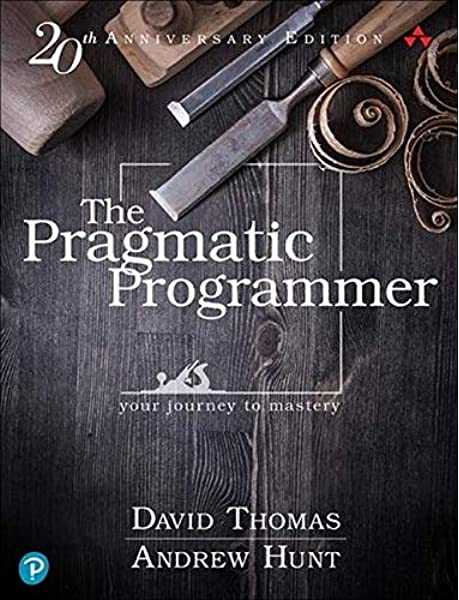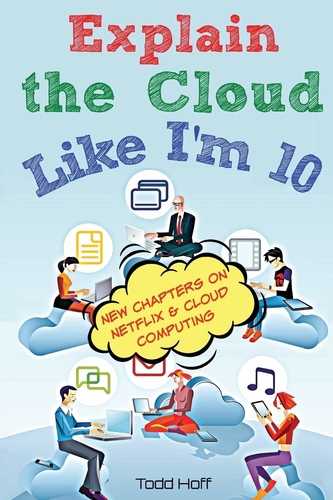
Hi folks, It has been a long time since my last post. It’s time to back to writing, better late than never(or better late than even later).
Well, I’m here to talk about five books that helped me a lot in my career regarding decision making, strategies to solve problems, general knowledge, soft skills, and motivation.
“A reader lives a thousand lives before he dies . . . The man who never reads lives only one.”
I like to think that I’ve anticipated a lot of problems and I’ve learned valuable lessons reading these books below:
- The Passionate Programmer: Creating a Remarkable Career in Software Development
- The Pragmatic Programmer - your journey to mastery(20th Anniversary Edition)
- Unwritten Laws of Engineering - Second Edition
- Remote: Office Not Required
- Explain the Cloud Like I’m 10
Let me explain a little bit about how each of these books helped me…

The Passionate Programmer: Creating a Remarkable Career in Software Development
.jpg)
I really love this book by Chad Fowler. I read it in a period in which I was struggling to grow in my career, working in a very toxic environment, and dazed and confused about what I was looking for in the software development world.
At that time I was asking myself: What should I study now? Am I a full-stack developer? Should I focus on backend? Or frontend? What programming languages should I learn? This book has helped me a lot to answer all of these questions.
The book is strictly about career development and it has a lot of insights about how to perform better as a programmer and explore the best opportunities for you. With this book, I discovered how much I really love to work with programming and it has opened my eyes to some ways to improve.
The Pragmatic Programmer - your journey to mastery(20th Anniversary Edition)

A masterpiece by David Thomas and Andrew Hunt. This book is about career development too, showing topics ranging from personal responsibility and career development to architectural techniques for keeping your code flexible and easy to adapt and reuse.
The book is filled with classic and fresh anecdotes, thoughtful examples, and very interesting analogies. I’ve learned and developed skills, habits, and attitudes from this book and formed a foundation for the long term. I really think that pragmatism is a core skill for a software engineer and this book was fundamental for me to develop it.
I strongly suggest the latest edition because it is using examples with updated technology and terminology.
Unwritten Laws of Engineering - Second Edition
.jpg)
The oldest book here. A classic written by W. J. King in 1944. A book with a message so timeless, so universal, that it transcends generations. Good news: it’s a revised and updated edition, so don’t mind about unused terminologies or having a very struggling reading.
This book is amazing to understand the corporate structure and how you should behave to improve your professional effectiveness. The book isn’t about acting like a corp robot but rather about keeping in mind some directives that are going to facilitate your job and the projects that you are working on, considering the nature of the job, your supervisor, your relations, the products involved, your career, and your behavior.
This book transcends the engineering field and its concepts could be applied to every occupation I guess.
Remote: Office Not Required
.jpg)
This book by David Heinemeier Hansson and Jason Fried helped me a lot in the 2020’s COVID pandemic (and it’s still helping). I’m not a big fan of remote work, and when the pandemic started I really worried about my performance at my job because I’ve never worked this way before.
Be aware that you’re not going to be delighted by scientific evidence about doing this or that. It’s a very opinionated book, presenting the empiric knowledge about what worked(and is still working) for 37 signals as a fully remote company.
Although some of the situations presented sometimes seem exaggerated, for me it was possible to draw a parallel with my reality and apply many of the ideas to my work routine.
Furthermore, this book is very valuable for communication at all with very valuable tips that you can apply even if you’re not working remotely.
Another very good source of knowledge about it is The Basecamp Guide to Internal Communication.
Explain the Cloud Like I’m 10

Just brilliant. This book by Todd Hoff presents some very interesting and complex concepts about networks, cloud services and it explains what happens under the hood when you watch something on a huge streaming service like Netflix.
Not only having these hard concepts being explained in a very enjoyable way to read but this book has also opened my mind about presenting content. The terminology, the images, the analogies, all of these aspects in this book have helped a lot to make my own presentations.
Explaining complex concepts through flow-diagrams and alike has increased a lot of my skills and my impact on the teams I’ve worked on. Lots of tips on how to do that I borrowed from this great book.
This book is amazing for software developers and it’s even more important for non-technical people. I truly believe that this is a book for everyone.
That’s all folks.
Hope you’ve enjoyed this list. Reading has been fundamental for my professional and personal growth. I hope these recommendations help you too.
Which books were important to your career?
*Thanks to Marcel Bornancin for the review.